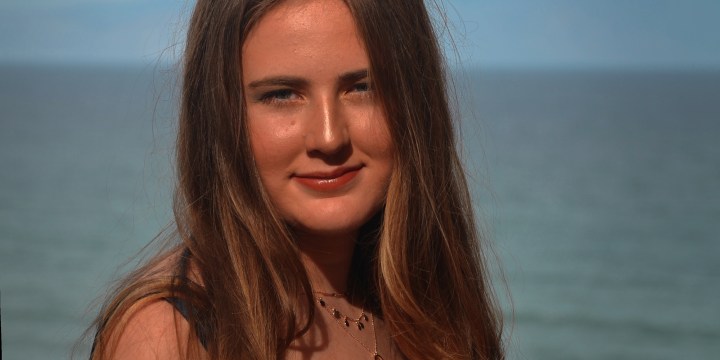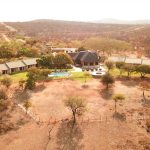Our Burning Planet
Climate Profile: Keeto Jenkins, the 17-year-old surfer against plastics

Keeto Jenkins, a soft-spoken young woman from Muizenberg who attends Rustenburg High School, has been vegan her whole life. Ahead of the global #ClimateStrike on Friday 20 September, we asked Jenkins why she is passionate about climate justice and keeping our oceans clean.
“I’ve never eaten meat, dairy or eggs,” Jenkins told Daily Maverick in an interview conducted before a meeting of the African Climate Alliance.
“As a personal opinion, I don’t believe in the sustainability of the meat industry. I don’t think that we shouldn’t eat meat, I just think the current industry is not correct,” said Jenkins. “People are usually shocked, they want to know how I’ve lived my life and how I haven’t gotten deathly sick.”
Although her parents are environmentally conscious, Jenkins only recently became involved in climate activism. She had previously joined a group to ban plastics in False Bay, with her mother, but found she was the only young person there. She subsequently joined the African Climate Alliance.
For the 17-year-old surfer, plastic pollution is an issue near to her heart.
Although the plastic bag was dubbed South Africa’s national flower before Jenkins became involved in the movement for climate justice, she is intimately aware of its presence in the sea.
According to Greenpeace, the equivalent of one garbage truck full of plastic is dumped into the ocean every minute.
“If it’s a hot day with loads of people on the beach, if you go surfing the next day you can’t paddle without feeling plastic slip through your fingers. And besides it just being really gross and disgusting to be in the water, it’s deathly terrifying and sad that this huge body of water right on our doorstep is so filled with plastic.”
Over the years Jenkins has watched the slow decay of the ocean. Sometimes, when she goes out paddling, the ocean feels oily. “It doesn’t feel like water flowing through your hands, it feels thick and dirty,” said Jenkins.
She has also started to see more and more seals, sharks and other sea creatures littering the beaches, strangled by plastic or bursting open to reveal small pieces of plastic mistaken for food while the animal was still alive.
As an avid surfer, people might assume that Jenkins welcomed the announcement that Great White Sharks have not been seen in False Bay, where she surfs regularly, for over 18 months. But Jenkins views it as a prime example of the impact climate change has already had on her life.
“As a kid I remember almost once a week the shark alarm would go off and we’d all have to get out of the water. I remember watching from Boyes Drive, that shark spotter place, these huge Great Whites swimming around, and hearing stories about them. But that hasn’t happened in a long time now.”
In terms of policy change, Jenkins thinks no government is doing enough to protect the environment. She is committed to seeing the South African government ban plastic bags and single-use plastics in the near future.
According to National Geographic, the African continent is leading the charge against plastic pollution. To date, 34 countries have introduced legislation to either ban or tax the purchase and production of plastic bags – 31 of them are located in sub-saharan Africa, a region called home by most of the world’s poorest people according to the World Bank.
But going plastic free is not an easy task, particularly in South Africa. Jenkins considers herself lucky because she has access to a plastic-free grocery store, one of just a handful scattered across the Western Cape.
During our interview, Jenkins struggled to remember the names of African countries that have banned plastic bags. She named Kenya and hesitantly followed with Tanzania, but rather than let her flounder, her comrades sitting across the table and on the other side of the room jumped to her aid and listed the names of other countries that have taken steps toward banning plastic.
“In terms of plastic, the South African government is lagging behind. I think it’s very important for Africa to set an example for the rest of the world and show that we’ve done it first. We can apply pressure to the Western world and say if we can do it you can do it too,” she said.
Jenkins hopes environmental action and the number of people demanding climate justice will start to increase rapidly in the near future.
“It’s the spread of something good, but just as fast as a disease or a virus,” she told Daily Maverick, laughing. “As soon as you get one person on board or one person believing in climate action, you can change the minds of a lot of people.” DM






















 Become an Insider
Become an Insider